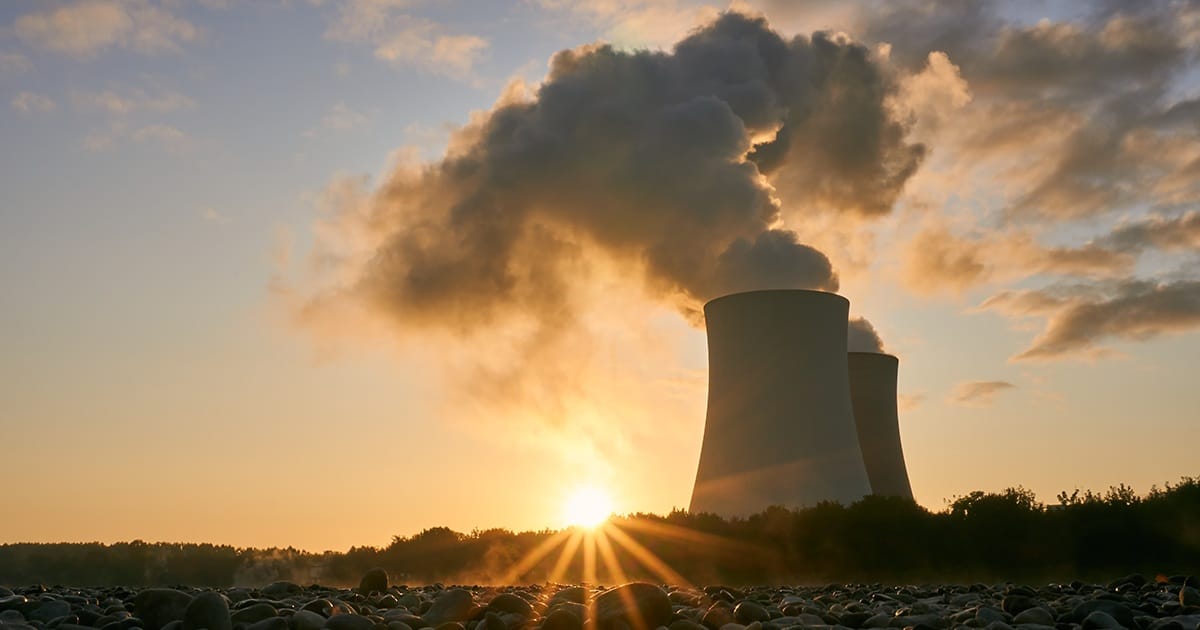

In a significant policy shift, Greece’s Prime Minister Kyriakos Mitsotakis on Wednesday hinted at Greece’s potential future development of nuclear energy as a crucial component of its green transition strategy.
Speaking at the “Energy Transition Summit: East Med and Southeastern Europe” conference, organized by the Financial Times and Kathimerini in Athens, Mitsotakis stated Greece “should be prepared to join the nuclear alliance.”
The Prime Minister acknowledged the unexpected nature of this declaration, given Greece’s lack of prior experience in nuclear energy. “This may come as a shock to some of those listening to us,” he remarked in conversation with FT’s climate editor, Emiliya Mychasuk.
However, he emphasized a global perspective: “When I look at the overall energy developments, I see no way for the world to get to carbon neutrality without nuclear, and I see very interesting developments in nuclear development.”
He clarified that immediate action isn’t the goal, stating, “I’m not saying we’re going to do anything next day, but at least I want us to be part of the conversation.”
This isn’t the first time Mitsotakis has suggested a nuclear future for Greece. In 2024, he also questioned Europe’s commitment to next-generation nuclear reactors, stating, “There is no way that we will reach carbon neutrality without nuclear.”
Since taking office in 2019, the Greek government has made a concerted effort to move away from coal. Mitsotakis highlighted the significant progress, noting that coal now accounts for just 5 percent of electricity production, primarily used as a backup. Greece has achieved a renewable energy penetration of over 50 percent.
While the country has ambitious targets to further increase renewables, with a slight bias towards solar, Mitsotakis expressed a desire for more wind energy, particularly offshore wind, which he identified as having significant potential. He also emphasized the need for heavy investment in energy storage.
Beyond national energy production, the Prime Minister also proposed exploring nuclear energy for cutting emissions in the shipping industry, where Greece holds a prominent global position.
“This, of course, is a discussion that I’m very open to have with the shipping community, and to ensure that we create a common working group that is going to look at this technology at least as an option,” he stated.
Nuclear energy has historically faced significant resistance in Greece, largely due to the profound impact of the 1986 Chernobyl disaster. The catastrophic explosion at the Soviet-era plant caused widespread radioactive contamination, leading to enduring health concerns among the population.
However, the European landscape is shifting. Germany, for instance, recently reversed its long-held opposition to nuclear power under Chancellor Friedrich Merz’s new government, a decision influenced by the surge in gas prices following Russia’s full-scale invasion of Ukraine.
Despite the recent discussions, Greece currently has no operational nuclear power plants for electricity generation. While the Greek Atomic Energy Commission (ΕΕΑΕ) exists, a decision was made against implementing a nuclear power program for electricity.
The country has one operational nuclear research reactor at the Demokritos Research Institute and one sub-critical assembly.
Historically, Greece received some nuclear-generated electricity from Bulgaria, but these imports have largely ceased since the shutdown of two Bulgarian reactors in 2006.
Concerns about the country’s small size and frequent seismic activity in the region, bordering Italy and Turkey, have previously led Greece to believe that nuclear power would not offer substantial benefits.
